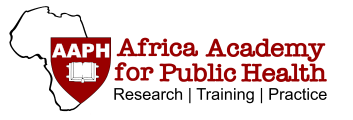
AAPH implements an internship program for graduates and undergraduate students who are in their middle to senior years and interested in public health and research practical experience. Internships typically happen post-graduation or when university students are on their summer break. AAPH offers an opportunity to pair each student with two mentors, one in Tanzania and one from Harvard T.H. Chan School of Public Health. AAPH has the potential to extend the service to accommodate field placement for postgraduate students in Tanzania and other interested institutions to gain hands-on skills and experience in research design, data management and analysis, and scientific writing.
Public Health HIV Care and Treatment clinics as well as the Reproductive and Child Health Clinics that provide Prevention of Mother to Child Transmission of HIV (PMTCT) among other sites, provide opportunities for the interns to participate in fieldwork. Additionally, the Dar es Salaam Urban Cohort Study (DUCS) which is jointly implemented by MUHAS and the Harvard T.H. Chan School of Public Health with administrative support from AAPH as well as the Dodoma Demographic & Health Surveillance System (DHSS) offer an opportunity for interns to obtain practical experience in community health while providing opportunities for rich data to answer diverse research questions. To date, AAPH has hosted over 16 interns from different universities and will be expanding its program to attach more students within and outside Tanzania through the ARISE Network partners.
Areas of Strategic Focus
In working to achieve the five strategic goals, AAPH focuses on five thematic areas:
- Maternal, child, and adolescent nutrition. Priority areas include maternal undernutrition, micronutrient deficiencies, and issues in early childhood development, such as wasting, stunting, and anemia.
- Reproductive, maternal, newborn, childhood, and adolescent health. AAPH works with various stakeholders in designing, evaluating, and scaling up effective interventions to increase access to quality obstetric, delivery, postnatal, under-five, and adolescent health services in the country.
- Non-communicable diseases (NCDs). AAPH aligns its research and training activities toward the development of cost-effective strategies to reduce the impact of NCDs on the country’s burden of disease. The target is to generate relevant evidence on distribution, frequencies, and key drivers of modifiable risk factors for these conditions. AAPH also collaborates with other stakeholders to evaluate and advance the delivery of quality clinical management of prevalent NCDs in the region.
- Infectious diseases. AAPH embarks on research and training activities geared toward achieving epidemic control of the human immunodeficiency virus and acquired immune deficiency syndrome (HIV/AIDS), as well as eliminating tuberculosis, malaria, and other infectious diseases of public health importance in sub-Saharan Africa. AAPH strives to amplify its role in generating evidence to inform national efforts toward efficient emergency preparedness and outbreak management.
- Institutional strengthening. AAPH invests in robust institutional strengthening and resource-mobilization strategies.
Projects within these thematic areas have diverse potentials for internship and student placements.
In addition to the AAPH Research and Programs core business, AAPH shall admit a limited number of interns in the supporting departments i.e., the Finance, Human Resources and Administration, as well as the Data Science and Information Technology departments.
Admission Criteria
Over the years, AAPH has been working closely with local academic institutions, particularly MUHAS, to host MSc in Implementation Science candidates for a three-month field placement. The candidates worked closely with their supervisors and AAPH staff to contribute in conducting an implementation science project locally. On the other hand, AAPH has also hosted international students in their undergraduate degree training for four weeks and engaged in practical field experience that included data collection. Likewise, students were also working closely with their supervisors but in support and close mentorship of the AAPH staff.
The AAPH-IP receives both local and international interns interested to gain practical experience and skills. Admission shall be on a rolling basis per the following criteria:
- The interested individuals must fill an online application form and submit the required documents.
- The applicants must be affiliated with a local or international academic/ public/ private institution who must nominate or recommend the candidate to AAPH by letter.
Duration
The duration of the field placement shall be between one to three months. It is possible to extend the internship with prior arrangements.
Costs
The costs related to travel, accommodation, health/medical insurance, and daily subsistence allowance that include meals, are the sole responsibility of the intern or the affiliated institution. AAPH-IP will not by any means cover any of such costs. However, while the candidates are at the AAPH premises, they will access a workstation, internet services, and be provided with the necessary materials or documents to meet their internship goals. Nevertheless, interns are strongly advised to have their personal laptop computers. In addition, where there are field activities, AAPH will facilitate the logistical arrangements given the existing project(s) and availability of funds.
Contact Information
For more information on the AAPH-IP and field placements, please Contact Us and adress the Human Resources and Administration Office.
